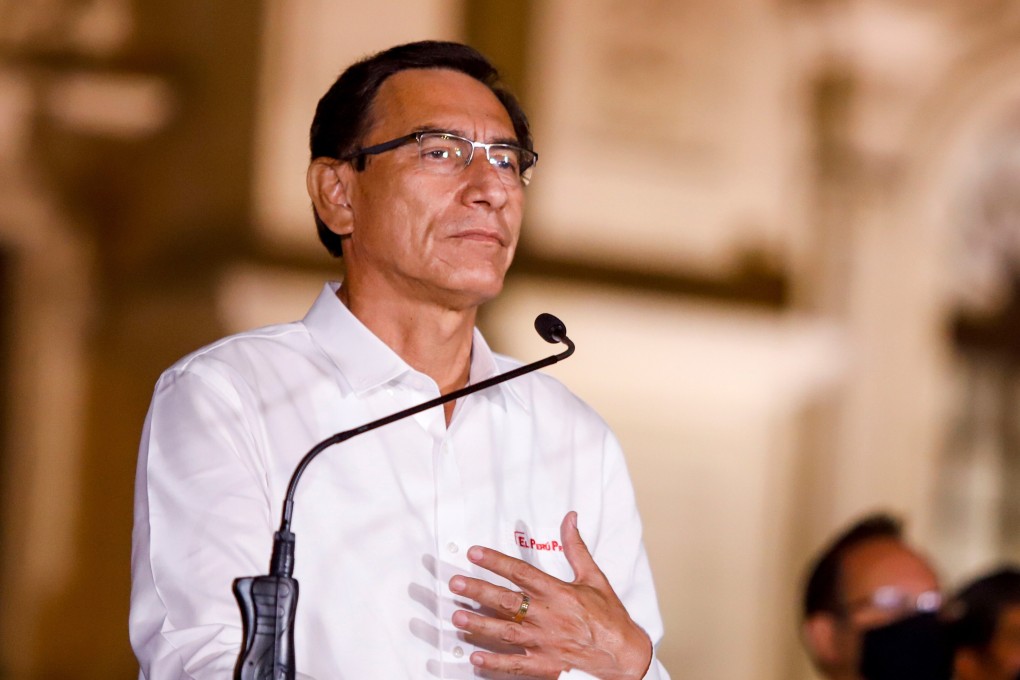Peru veers towards political crisis after Vizcarra removed as president
- Vizcarra made defeating corruption his principal mission, and he is one of the nation’s most popular leaders in recent history
- His removal could spell a new chapter of uncertainty for the country, which has the world’s highest per capita Covid-19 mortality rate

Thousands poured on to the streets of Peru’s capital Monday night to protest President Martín Vizcarra’s removal, vilifying lawmakers and demanding their resignations. Several politicians not in Congress denounced the removal as a disguised coup. Some said any new incoming president should be considered illegitimate.
But the outgoing leader who himself rose to power after another president’s downfall quickly announced he wouldn’t pursue any legal challenges, even though he insisted he had committed no crime.
“Today I am leaving the government palace,” Vizcarra said. “Today I am going home.”
According to the chain of succession, the head of the legislature will take his place. Lawmakers scheduled a ceremony to swear the new leader in Tuesday morning.
Analysts called the action by legislators an overt and risky power grab, with Congress already unpopular while Vizcarra is widely lauded for his campaign against corruption. The speed of the move against the president and lack of evidence led some political analysts to warn that Congress could be putting Peru’s democracy in jeopardy.